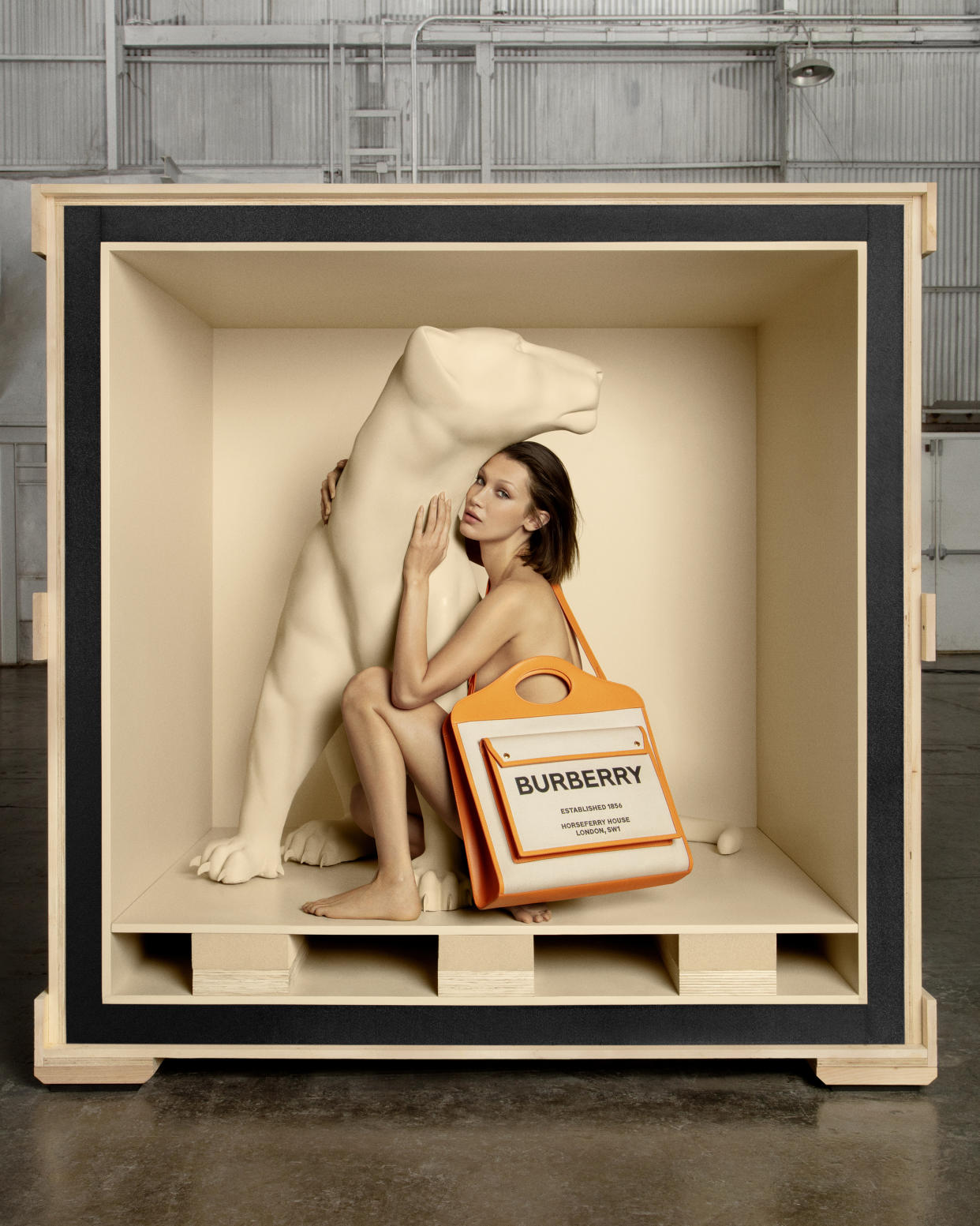Burberry to Raise Money for Sustainability Projects With Bond

LONDON — Burberry is pumping up its environmental efforts with plans to issue a sustainability bond meant to finance current and future projects.
Burberry said its bond will be the first sustainability labeled one issued by a luxury company, and will diversify its sources of funding, introducing long-term financing into the company’s capital structure.
The bond would be benchmark-sized, medium-dated and denominated in British pounds. Burberry confirmed it has applied to be rated by Moody’s and expects the bond to be rated Baa2, a stable outlook.
It will be offered to professional investors and eligible counterparties. Applications will be made for the admission of the bond to be listed on the official list of the U.K. Listing Authority and to be traded on the main market of the London Stock Exchange.
The proceeds will be used to finance and/or refinance sustainable projects as described by Burberry‘s Sustainability Bond Framework.
“Burberry has a longstanding commitment to sustainability and is dedicated to using its position and influence to drive social and environmental improvements,” the company said Wednesday.
The bond will be held at the same rate as Burberry’s debt facilities, and will be guaranteed by the Burberry group entities, which also guarantee the 300 million pounds revolving credit facility.
It will be issued pursuant to the company’s Sustainability Bond Framework, which has received a second-party opinion from Sustainalytics, Burberry said.
Burberry has made a number of strides in the sustainability space. The brand said it hopes to be carbon neutral by 2022, and is switching to renewable energy sources and working on reducing greenhouse gas emissions.
Over the past two years, it has changed its packaging, which is now made partly from recycled coffee cups, fully recyclable and certified by the Forest Stewardship Council. It is also working on reducing the plastic footprint of its transit packaging, and has introduced new transit hangers made from a bio-based compostable alternative. It has also switched its garment bags to a compostable PHA-blended material.
The company, which came under fire a few years ago for incinerating excess stock, has ramped up efforts to reuse, repair, donate and recycle old or excess inventory. Each year it donates tens of thousands of pieces of business clothing as part of its long-term partnerships with charities such as Smart Works, which supports unemployed women with interview training, clothing and styling advice ahead of job interviews.
Earlier this year, it began rolling out new labelling across all key product categories in a bid to show how each product is meeting certain sustainability requirements. The rollout of the labeling coincides with the launch of ReBurberry Edit, a collection of 26 of its top spring 2020 looks re-created using sustainable materials.
Burberry’s decision to issue the bond is part of trend among big luxury companies to seek funds to finance sustainability projects.
Last November, Prada SpA signed with Crédit Agricole Group on the first sustainability-linked loan in the luxury goods industry. As reported, Prada will be granted 50 million euros over five years, with an annual pricing adjustment based on how efficiently it achieves its sustainability targets.
The interest rate will be reduced after it hits targets related to the number of stores assigned with a LEED Gold or Platinum Certification; training hours for the employees; and the use of Prada Re-Nylon, or regenerated nylon, for the production of goods.
In June, Salvatore Ferragamo SpA signed a credit deal with Intesa Sanpaolo SpA for a maximum amount of 250 million euros linked to the luxury brand’s ability to achieve certain sustainability goals.
As reported, the facility will support the Florence-based company’s specific Environmental, Social and Governance targets, general cash-flow needs, and reduce risks from the current market situation due to COVID-19. It also helps consolidate Ferragamo’s commitment to sustainable investments.
A month later, Moncler signed a credit deal with the same Italian bank for a maximum amount of 400 million euros, with interest rates tied to how and when it reaches its environmental impact reduction targets. Moncler’s committed credit line expires in 2023 and can be renewed for two additional years.
Earlier this year, VF Corp., which owns brands including Timberland, Vans, The North Face and Dickies, formally revealed the close of its first green bond.
Burberry said Wednesday it has a “conservative” capital allocation policy and already holds substantial liquidity. Following the outbreak of COVID-19 earlier in the year, the company drew down its 300 million pounds revolving credit facility and issued 300 million pounds of short-dated commercial paper under the Bank of England’s COVID-19 Commercial Financing Facility, with a maturity in March 2021.
Burberry said the revolving credit facility drawings were repaid in full in the first quarter of the current fiscal year.
Shares in Burberry closed down 0.8 percent at 14.88 pounds on the London Stock Exchange on Wednesday.
Sign up for WWD's Newsletter. For the latest news, follow us on Twitter, Facebook, and Instagram.

